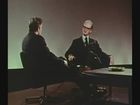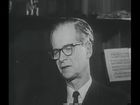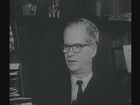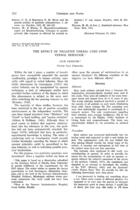Browse Experiment - 15 results
View Editor's Choice
Editor's Choice
- Narrow by:
- Less...
Title |
Specialized type |
Duration / Pages |
||
|---|---|---|---|---|

|
Interview with B. F. Skinner 4 | Interview | 01:05 | |

|
Interview with B. F. Skinner 5 | Interview | 01:07 | |

|
Skinner discusses classroom behavior and reinforcement. | Interview | 00:37 |
Description
Auto-generated YouTube channel on the topic of B. F. Skinner
Field of Study
Psychology
Content Type
Interview, Lecture/presentation
Person Discussed
B. F. Skinner, 1904-1990
Topic / Theme
Pigeon Experiment, Observation Methods, Between Groups Design, Learning and Conditioning
Experiment
Pigeon Experiment
×
B. F. Skinner On Counseling
presented by B. F. Skinner, 1904-1990; with B. F. Skinner, 1904-1990; produced by Joan Z. Cohen, fl. 1972, Rita M. Whiteley, fl. 1972 and John M. Whiteley, fl. 1974; interview by John M. Whiteley, fl. 1974 (New York, NY: John Whiteley, 1972), 31 mins
In this video, B.F. Skinner discusses the behavioral model of counseling. He considers the ways in which behavior can be changed and emphasizes the importance of the relationship between the counselor and client.
Sample
presented by B. F. Skinner, 1904-1990; with B. F. Skinner, 1904-1990; produced by Joan Z. Cohen, fl. 1972, Rita M. Whiteley, fl. 1972 and John M. Whiteley, fl. 1974; interview by John M. Whiteley, fl. 1974 (New York, NY: John Whiteley, 1972), 31 mins
Description
In this video, B.F. Skinner discusses the behavioral model of counseling. He considers the ways in which behavior can be changed and emphasizes the importance of the relationship between the counselor and client.
Field of Study
Counseling & Therapy
Content Type
Interview
Contributor
Joan Z. Cohen, fl. 1972, Rita M. Whiteley, fl. 1972, John M. Whiteley, fl. 1974
Author / Creator
John M. Whiteley, fl. 1974, B. F. Skinner, 1904-1990
Date Published / Released
1972
Publisher
John Whiteley
Person Discussed
B. F. Skinner, 1904-1990
Topic / Theme
Client-therapist relationship, Theory, Pigeon Experiment, Behavior modification, Counselors, Learning and Conditioning, Positive reinforcement, Behavior change, Behavior, Client-counselor relations, Behavior therapy
Copyright Message
Copyright © 2014. Used by permission of Insight Media
Experiment
Pigeon Experiment
×
Basic Writings in the History of Psychology
with Robert I. Watson, Sr. (New York, NY: Oxford University Press, 1979, originally published 1979), 420 page(s)
Sample
with Robert I. Watson, Sr. (New York, NY: Oxford University Press, 1979, originally published 1979), 420 page(s)
Field of Study
Psychology
Content Type
General reference book
Author / Creator
Robert I. Watson, Sr.
Date Published / Released
1979
Publisher
Oxford University Press
Topic / Theme
Pavlov's Dogs Experiment, Little Albert Experiment, Pigeon Experiment, Experimental Methods and Ethics, History of psychology
Copyright Message
Copyright © 1979 by Oxford University Press, Inc.
Experiment
Pavlov's Dogs Experiment, Little Albert Experiment, Pigeon Experiment
Sections
×
B.F. Skinner, Part 1
interview by Richard Evans (Akron, OH: University of Akron. Cummings Center for the History of Psychology, 1964), 51 mins
Dr. Skinner evaluates Freudian theory and discusses his views on motivation, operant conditioning, schedules of reinforcement, punishment, and teaching machines. From the Notable Contributors to the Psychology of Personality series. Produced by R.I. Evans.
Sample
interview by Richard Evans (Akron, OH: University of Akron. Cummings Center for the History of Psychology, 1964), 51 mins
Description
Dr. Skinner evaluates Freudian theory and discusses his views on motivation, operant conditioning, schedules of reinforcement, punishment, and teaching machines. From the Notable Contributors to the Psychology of Personality series. Produced by R.I. Evans.
Field of Study
Psychology
Content Type
Interview
Author / Creator
Richard Evans
Date Published / Released
1964
Publisher
University of Akron. Cummings Center for the History of Psychology
Person Discussed
B. F. Skinner, 1904-1990, Sigmund Freud, 1856-1939
Topic / Theme
Pigeon Experiment, Observation Methods, Between Groups Design, Perception and Consciousness, Emotion and Motivation, Learning and Conditioning, Learning, Perception, Negative reinforcement, Conditioning, Reinforcement, Motivation, Emotional states, Consciousness, Behaviorism
Copyright Message
Copyright © 1966. Used by permission of Drs. Nicholas and Dorothy Cummings Center for the History of Psychology.
Experiment
Pigeon Experiment
×
B.F. Skinner, Part 2
interview by Richard Evans (Akron, OH: University of Akron. Cummings Center for the History of Psychology, 1966), 46 mins
Dr. Skinner discusses his novel, Walden Two, illustrating the problems of creating a society based on positive control. Skinner evaluates the American educational system and describes the application of operant conditioning to society at large. From the Notable Contributors to the Psychology of Personality series....
Sample
interview by Richard Evans (Akron, OH: University of Akron. Cummings Center for the History of Psychology, 1966), 46 mins
Description
Dr. Skinner discusses his novel, Walden Two, illustrating the problems of creating a society based on positive control. Skinner evaluates the American educational system and describes the application of operant conditioning to society at large. From the Notable Contributors to the Psychology of Personality series. Producer: R.I. Evans.
Field of Study
Psychology
Content Type
Interview
Author / Creator
Richard Evans
Date Published / Released
1964, 1966
Publisher
University of Akron. Cummings Center for the History of Psychology
Person Discussed
B. F. Skinner, 1904-1990
Topic / Theme
Pigeon Experiment, Learning and Conditioning, Motivation, Learning, Reinforcement, Behavior, Psychopathology, Behaviorism
Copyright Message
Copyright © 1966. Used by permission of Drs. Nicholas and Dorothy Cummings Center for the History of Psychology.
Experiment
Pigeon Experiment
×
Field of Study
Psychology
Content Type
Documentary
Person Discussed
B. F. Skinner, 1904-1990
Topic / Theme
Pigeon Experiment, Observation Methods, Between Groups Design, Learning and Conditioning
Experiment
Pigeon Experiment
×
23: B. F. SKINNER AND OPERANT CONDITIONING
with Douglas Mook; in Classic Experiments in Psychology (Westport, CT: Greenwood Press, 2004, originally published 2004), 143-146
Sample
with Douglas Mook; in Classic Experiments in Psychology (Westport, CT: Greenwood Press, 2004, originally published 2004), 143-146
Field of Study
Psychology
Content Type
General reference book
Author / Creator
Douglas Mook
Date Published / Released
2004
Publisher
Greenwood Press
Person Discussed
B. F. Skinner, 1904-1990
Topic / Theme
Pigeon Experiment, Learning and Conditioning, History of psychology, Experiments, Responses, Reinforcement, Operant conditioning, Behaviorism
Copyright Message
Copyright © 2004 by ABC-Clio
Experiment
Pigeon Experiment
×
The Effect of Negative Verbal Cues Upon Verbal Behavior
with Jack Sandler, fl. 1962, in Journal of Abnormal and Social Psychology, Vol. 64 no. 4, April 1962, pp. 312-316 (District of Columbia: American Psychological Association and Journal of Abnormal and Social Psychology, 1962, originally published 1962), 5 page(s)
DISCLAIMER:
The videos in the APA Psychotherapy Video Series are intended for educational and training purposes. Unauthorized viewing of these videos is expressly prohibited. All participants have agreed to allow their clinical...
The videos in the APA Psychotherapy Video Series are intended for educational and training purposes. Unauthorized viewing of these videos is expressly prohibited. All participants have agreed to allow their clinical...
Sample
with Jack Sandler, fl. 1962, in Journal of Abnormal and Social Psychology, Vol. 64 no. 4, April 1962, pp. 312-316 (District of Columbia: American Psychological Association and Journal of Abnormal and Social Psychology, 1962, originally published 1962), 5 page(s)
Field of Study
Psychology
Content Type
Periodical article
Author / Creator
Jack Sandler, fl. 1962
Date Published / Released
1962
Publisher
American Psychological Association, Journal of Abnormal and Social Psychology
Topic / Theme
Pigeon Experiment, Between Groups Design, Learning and Conditioning, Reinforcement, Conditioning
Experiment
Pigeon Experiment
Sections
×
Foundations: Skinner
Professor Bloom opens with a brief discussion of the value and evolutionary basis of unconscious processing. The rest of this lecture introduces students to the theory of Behaviorism, particularly the work of prominent behaviorist, B. F. Skinner. Different types of learning are discussed in detail, as well as reas...
Sample
Description
Professor Bloom opens with a brief discussion of the value and evolutionary basis of unconscious processing. The rest of this lecture introduces students to the theory of Behaviorism, particularly the work of prominent behaviorist, B. F. Skinner. Different types of learning are discussed in detail, as well as reasons why behaviorism has been largely displaced as an adequate theory of human mental life.
Field of Study
Psychology
Content Type
Lecture/presentation
Date Published / Released
2008
Person Discussed
B. F. Skinner, 1904-1990
Topic / Theme
Pigeon Experiment, Observation Methods, Between Groups Design, Learning and Conditioning
Experiment
Pigeon Experiment
×
The pattern behind self-deception
Michael Shermer says the human tendency to believe strange things -- from alien abductions to dowsing rods -- boils down to two of the brain's most basic, hard-wired survival skills. He explains what they are, and how they get us into trouble.
Sample
Description
Michael Shermer says the human tendency to believe strange things -- from alien abductions to dowsing rods -- boils down to two of the brain's most basic, hard-wired survival skills. He explains what they are, and how they get us into trouble.
Field of Study
Psychology
Content Type
Lecture/presentation
Date Published / Released
2010
Person Discussed
B. F. Skinner, 1904-1990, Ivan Petrovitch Pavlov, 1849-1936
Topic / Theme
Pigeon Experiment, Pavlov's Dogs Experiment, Between Groups Design, Observation Methods, Experimental Design, Learning and Conditioning
Experiment
Pigeon Experiment, Pavlov's Dogs Experiment
×






